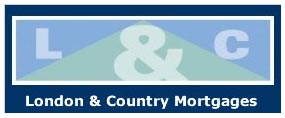Accident Advice Helpline Managing Director, Darren Werth, in his capacity as Chairman of the Claims Standards Council, was invited to chair the afternoon session of the IEA and Marketforce’s 4th Annual Claims Forum Conference in London.
Darren shared the stage with some of the insurance industry’s most significant players including Peter Hubbard, Former Chief Executive of AXA Insurance, David Williams, Managing Director Claims, AXA and John Higgins, Head of UK Personal Injury AIG.
It is thought to be the first time that a Claims Management company has been invited to participate at such a high level conference within the defendant insurance industry. Darren’s provocative and thought-provoking opening statement to the delegates echoed the warning shot issued by Lord Chief Justice Judge to lawyers at the ILEX Inaugural Lunch earlier this month that a failure to engage with the claims industry as a whole in the current environment may lead to the loss of opportunity, particularly as the future legal landscape remains very much under review.
Accident Advice Helpline remains at the forefront of the personal accident claims management industry trying to bring about reform. Accident Advice Helpline recently showed its intent to improve the industry as a whole with its acquisition and ongoing development of the Resolusion software system. The Resolusion software system will help settle claims more efficiently bringing about cost savings and streamlining the process.
About Accident Advice Helpline:
Accident Advice Helpline was established in 2000 following the removal of legal aid to accident victims with personal injury cases. The company was founded to provide access to justice for accident victims and, since its creation, has helped thousands of people claim compensation against the responsible parties.
The company has thrived and puts its success down to adhering strictly to its four key principles; integrity, dependability, reliability and accountability. As one of the most established companies in the industry, Accident Advice Helpline has worked tirelessly to ensure that making a claim is simple, fast and easy.
Working on a no win, no fee basis, the injury compensation specialist is the UK’s leading company of its kind and prides itself on quick and effective compensation claims processing, with high quality service and an admirable success rate. The level of customer satisfaction which Accident Advice Helpline is known for is characterised by television star Esther Rantzen’s continued support for the company, which she has steadily provided since 2003.
Via EPR Network
More Financial press releases





















